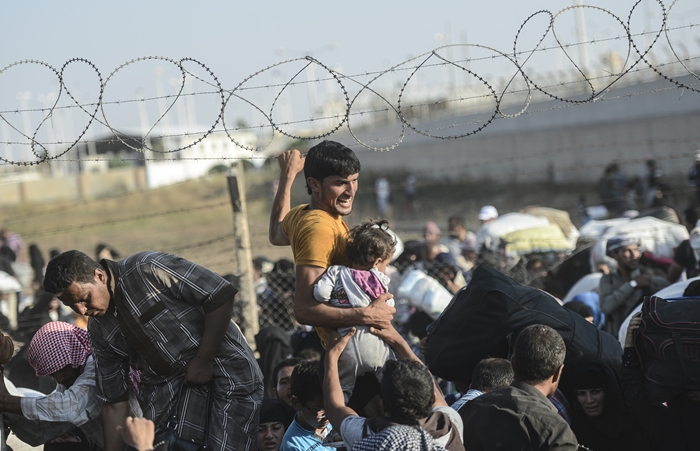Turkey has scored 43 points on the 100-point scale of the Migrant Integration Policy Index (MIPEX) 2020, moving up from the bottom 10 countries since the 2015 index, with its policies shifting to only “halfway favorable” for the social integration of migrants.
Led by the Barcelona Centre for International Affairs (CIDOB) and the Migration Policy Group (MPG), MIPEX measures and compares what governments are doing to promote the integration of migrants in 52 countries across five continents, including all EU member states.
The index score is based on a set of indicators covering eight policy areas: Labor market mobility; family reunification; education; political participation; permanent residence; access to nationality; anti-discrimination; and health.
“While legal residents are not necessarily more secure about their long-term future, Turkey’s major improvements have gone halfway to guarantee them basic rights and opportunities while living in the country. With these fundamental shifts, Turkey has started to recognize its reality as a country of immigration,” said the index report released on Monday.
According to the report, Turkey still ranks at or near the bottom in four of the eight MIPEX areas — labor market mobility, political participation, permanent residence and anti-discrimination — where its policies are weaker than the other MIPEX countries and relatively unfavorable.
Turkey ranked “critically unfavorable,” among the bottom 10 countries, in the political participation area since foreigners in Turkey are not allowed to vote or join political parties.
“Turkey’s approach to integration does not yet encourage the public to see foreign citizens as their equals, neighbors and fellow citizens,” the report also indicated, as policies of the Turkish government only go halfway to secure basic rights, equal opportunities and long-term security for both foreign and Turkish citizens.
In the labor market mobility area, Turkey ranked “slightly unfavorable” due to most legal migrant workers being tied to their employer, without equal rights as workers and with little general and no targeted support to improve their job or skills.
According to data of the Norwegian Refugee Council (NRC), Turkey has received more refugees than any other country in the last 10 years – as many as 4.3 million, most of whom were Syrians fleeing a civil war that started in 2011.

